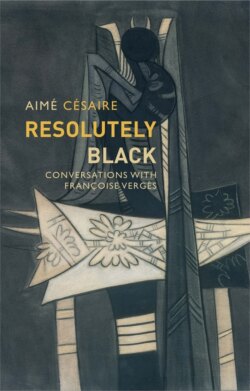Читать книгу Resolutely Black - Aimé Césaire - Страница 8
Notes
Оглавление1 Discourse on Colonialism (1972). Translated by Joan Pinkham (Monthly Review Press, 2000); Journal of a Homecoming. Translated by N. Gregson Davis (Duke University Press, 2017). Anglophone readers are fortunate to be able to choose from three widely available translations of Césaire’s seminal work Cahier d’un retour au pays natal. The 1968 translation by John Berger and Anna Bostock – Return to My Native Land, reissued by Archipelago Books in 2014 – has been complemented by two recent translations: a bilingual edition translated by Clayton Eshleman and A. James Arnold (Notebook of a Return to the Native Land, in The Complete Poetry of Aimé Césaire (Wesleyan University Press, 2017)) and, appearing at the same time, N. Gregson Davis’s translation, cited above. All three have much to recommend them, but Davis’s bilingual edition seemed to me to offer the most nuanced reading of Césaire’s poem. For a comparison of these three translations, see David B. Hobbs, “At the Living Heart: Translating Aimé Césaire,” The Nation, July 3, 2018. https://www.thenation.com/article/at-the-living-heart/ 2 Quoted in Daniel Guérin, Les Antilles décolonisées (Présence Africaine, 1956), p. 8. 3 Journal of a Homecoming, p. 77. 4 Michel Leiris, 30 octobre 1949, in Journal: 1922–1989. Edited by Jean Jamin (Gallimard, 1992, p. 473. 5 Ibid. 6 See his 2003 interview with K. Konaré and A. Kwaté in Césaire et Nous. Une rencontre entre l’Afrique et les Amériques au xixe siècle (Cauris Éditions, 2004), p. 11. 7 Aimé Césaire, “Pour la transformation de la Martinique en région dans le cadre d’une Union française fédérée,” Speech Delivered at the Constitutive Congress of the Parti Progressiste Martiniquais, March 22, 1958 (author’s archives). 8 Aimé Césaire, Toussaint Louverture (Présence Africaine, 1962); The Tragedy of King Christophe. Translated by Paul Breslin and Rachel Ney (Northwestern University Press, 2015); Victor Schœlcher et l’abolition de l’esclavage (Éditions Le Capucin, 2004) (reprinted from Esclavage et colonisation, PUF, 1948). 9 Les Indigènes de la République began as an anti-discriminatory movement in 2005 that viewed France’s colonial history as the source of its ongoing problems with discrimination, which became part of a larger national discussion after riots erupted in the Parisian banlieues in 2006. It later became its own political party, Parti des Indigènes de la République (PIR), which is still active today. Translator’s note.
